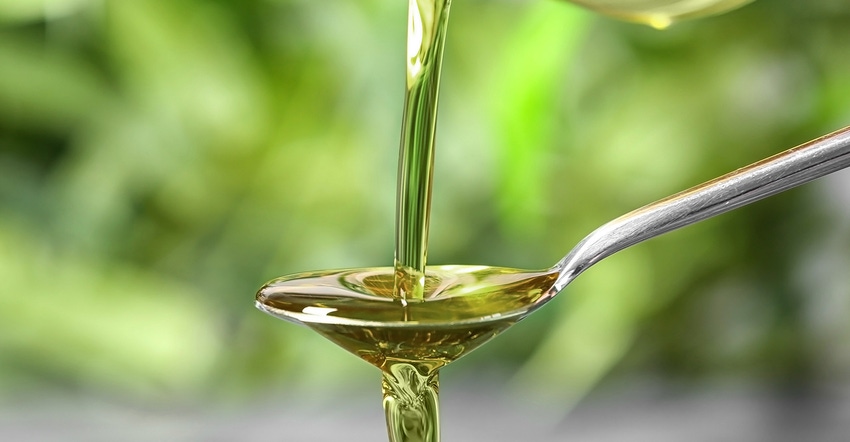Without FDA guidance on enforcement discretion for the use of CBD in food and dietary supplements, marketing and labeling will be a gray area.

Hemp was legalized under the 2018 Farm Bill when it was removed from the definition of marijuana under the Controlled Substances Act. However, the Farm Bill did not address the status of hemp or hemp-derived ingredients such as CBD under the Federal Food, Drug, and Cosmetic Act (FD&C), leaving FDA with authority to determine the legality of hemp-derived ingredients in FDA-regulated products such as food, drugs, dietary supplements and cosmetics. Furthermore, the legislation also did not forbid states from enacting their own laws to prohibit the sale of hemp or other CBD-containing products. Therefore, a lot of ambiguity surrounds hemp ingredients use in food at the state and federal level.
Contemporaneous with the signing of the 2018 Farm Bill, former FDA Commissioner Dr. Scott Gottlieb issued a statement on the agency’s regulation of products containing cannabis-derived compounds. In the statement, he acknowledged pathways are available for FDA to consider whether certain cannabis-derived compounds might be permitted in food and dietary supplements. However, as part of the announcement, the commissioner also reiterated FDA’s long-standing position that these pathways are not currently available for THC and CBD because both are active ingredients in FDA-approved drugs, and under the FD&C, it is illegal to introduce drug ingredients into the food supply or market them as dietary supplements.
Notably, Section 301(ll) of the FD&C (21 U.S.C. § 331[ll]), which creates the statutory prohibition for food, does permit the secretary of the U.S. Department of Health and Human Services to issue a regulation at the secretary’s discretion to approve the use of a drug in a food product. However, no such regulation has ever been issued for any substance. If FDA chose to use this provision to allow CBD in food, it would be the first of its kind. Furthermore, statements from FDA suggest if the agency were to create such a regulation, CBD would not be treated differently from any other food additive. That means companies would still have to follow one of the FDA regulatory pathways for adding new ingredients to food.
Under the FD&C, new food ingredients are required to undergo premarket approval by FDA through a food additive petition (FAP) process unless the substance is GRAS (generally recognized as safe) under conditions of its intended use among qualified experts. The difference between a GRAS determination and a premarket approval relates to who has access to the scientific data and information and who has reviewed the scientific data and information. For FAPs, the data is privately held and submitted by a sponsor to FDA for evaluation where the agency will determine if the substance is safe. On the contrary, a GRAS determination can be made by qualified experts outside the government.
For a substance to be GRAS, the science about the substance must be widely known and there must be a consensus among qualified experts. GRAS substances do not undergo premarket review, but companies may voluntarily notify FDA through its GRAS notification program. The benefit is FDA will respond to the notification by either issuing a “no questions letter,” meaning the agency does not question the basis for the notifier’s conclusion, or FDA can conclude the notification does not provide a sufficient basis for a GRAS conclusion. The notification and FDA’s response to the notification are also publicized on FDA’s GRAS notice inventory.
Companies can also make an independent determination of GRAS in which the scientific determination remains with the firm, or self-GRAS. The risk in doing a self-GRAS determination is FDA may disagree after the fact and the substance and foods containing that substance become unlawful, although to our knowledge the agency has never taken such action. Given the current uncertainties around hemp and CBD ingredients, a self-GRAS determination appears to be the only option for marketers seeking to support the safe use of these ingredients. That is because the agency is unlikely to evaluate a submission for an ingredient that does not actually qualify as a food ingredient in its view.
As part of the GRAS process, FDA issued three “no questions letters” to hemp seed GRAS notifications following the signing of the Farm Bill. The letters were for dehulled hemp seed and oil, indicating FDA agrees the ingredients are GRAS for various uses, including as a source of protein, carbohydrate and fat in beverages, soups, sauces, dressings and baked goods, among others. FDA noted in these letters that only “trace amounts of CBD and THC were present in the hemp seed-derived ingredients, and resulted from contamination with other parts of the plant during harvesting and processing.” Notably, all three notifications were for hemp seed, not hemp extracts made from other parts of the plant that may contain CBD and trace amounts of THC. Therefore, to our knowledge, hemp extracts have not received a general recognition of safety.
As noted above, any of these pathways could be more complicated for CBD or hemp-extracts containing more than trace amounts of CBD because of its status as an active ingredient in an FDA-approved drug. However, if FDA were to permit CBD in food under the 301(ll) exception, FDA has long-stated it would continue to treat CBD like any other ingredient. Consequently, companies will need to address FDA’s potential safety concerns with CBD. Primarily, they must evaluate how CBD affects the liver, its interactions with other drugs, reproductive toxicity and its effect on vulnerable populations.
Until FDA issues regulations or guidance on enforcement discretion for the use of CBD in food and dietary supplements, marketing and labeling these products will continue to be a gray area. Unofficially, FDA has acknowledged the pace of the CBD supplement market has outpaced its enforcement resources, and therefore, FDA has been focused on targeting bad actors that are making clear disease claims for their CBD products. However, because CBD is not allowed in food and supplements, marketing and labeling them as such would cause the product to be misbranded and adulterated in FDA’s view. Therefore, companies will need to have internal business discussions, which may require subject matter experts and legal counsel, to determine the acceptable risk of marketing these products under FDA’s regulations for food and dietary supplements.
Suzanne Bassett, associate, Amin Talati Wasserman LLP, advises clients on compliance, enforcement and transactional matters subject to overlapping jurisdictions of the FDA, USDA, FTC and the U.S. Consumer Product Safety Commission (CPSC). Bassett’s experience extends to matters involving the DEA, U.S. Customs and Border Protection (CBP) and various state and municipal agencies.
About the Author(s)
You May Also Like






.png?width=800&auto=webp&quality=80&disable=upscale)